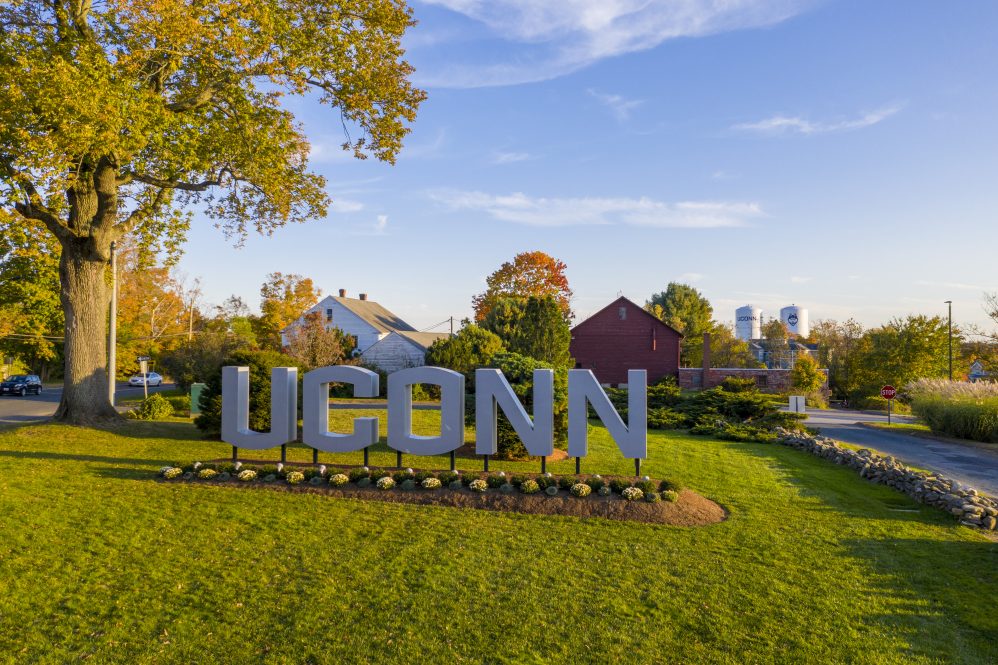Six University of Connecticut faculty members have been elected by the American Association for the Advancement of Science (AAAS) to its newest class of fellows. The AAAS is the world’s largest general scientific society and publisher of the Science family of journals.
The six are:
* Daniel Bolnick, a professor in the Department of Ecology and Evolutionary Biology in the College of Liberal Arts and Sciences.
* Ming-Hui Chen, a professor and head of the Department of Statistics in the College of Liberal Arts and Sciences.
* Brenton Graveley, Health Net, Inc. Chair in Genetics and Developmental Biology, chair of the Department of Genetics and Genome Sciences at the UConn School of Medicine, and Associate Director of the Institute for Systems Genomics.
* Dr. George Kuchel, Director of the UConn Center on Aging and The Travelers Chair in Geriatrics and Gerontology in the UConn School of Medicine.
* Guozhen Lu, a professor in the Department of Mathematics in the College of Liberal Arts and Sciences.
* Guiling Wang, a professor in the Department of Civil and Environmental Engineering and the Center for Environmental Science and Engineering.
Bolnick is interested in how evolution maintains genetic variation within species. Natural selection is usually thought of as a filtering process that removes all but the most-fit variants within a population, thus reducing variation. Yet, most natural populations of organisms harbor substantial genetic diversity. Bolnick’s research explores several possible solutions to this paradox. Recently, his work has focused on how parasites and their hosts co-evolve, and how their antagonism shapes variation in host immunity.
Chen has published more than 470 peer-reviewed journal articles and five books, including two advanced graduate-level books on Bayesian survival analysis and Monte Carlo methods in Bayesian computation. He served as president of the International Chinese Statistical Association and the New England Statistical Society and the chair of the Eastern Asia Chapter of International Society for Bayesian Analysis. He is currently co editor-in-chief of Statistics and Its Interface and co editor-in-chief of the New England Journal of Statistics in Data Science.
Graveley’s research interests are focused on studying RNA biology, particularly for advancing our understanding of the Drosophila transcriptome, alternative splicing, and human RNA binding proteins, as well as the fundamental mechanisms of CRISPR biology. A major focus of Graveley’s lab has been the Drosophila Dscam1 gene, which contains 95 alternative exons and has the potential to express over 38,000 isoforms through extensive alternative splicing.
Kuchel was recognized for distinguished contributions to the field of medical sciences and aging research, particularly using multidisciplinary translational approaches to improve the lives of older adults. His work defining the role of biological aging in functional declines involving host defense, mobility, cognition, and voiding has contributed to the emergence of the field of geroscience and to the testing of gerotherapeutic interventions for their ability to delay the onset and progression of varied chronic diseases of aging by targeting biological aging.
Lu is well-known for his contributions in harmonic analysis (particularly multiparameter harmonic analysis), geometric analysis. and partial differential equations. He is a leading mathematician in the areas of sharp geometric and functional inequalities, particularly using the Helgason-Fourier analysis. He has published over 200 research articles and his impactful works have been cited widely by his peers. Lu is an American Mathematical Society fellow and has awarded the prestigious Simons Fellowship twice. He serves as the editor-in-chief for both the premier journal Advanced Nonlinear Studies and the De Gruyter flagship book series Studies in Mathematics. Lu’s doctoral students have taken postdoctoral positions at prestigious universities in the United States and Canada
Wang studies the Earth’s hydrological cycle, its interaction with the terrestrial ecosystems, and its variability, change, and extremes. Her research spans the topics of land-atmosphere interactions at the subseasonal to seasonal timescales, ecosystem-climate interactions at the decadal to centennial timescales, and climate change impact on water, energy, and food security. She makes use of theoretical and process-based models of various complexity, empirical modeling including machine learning, satellite remote sensing and ground observational data. Her research led to improved predictions of regional climate and hydrological extremes.
The latest class of AAAS Fellows includes 502 scientists, engineers, and innovators spanning 24 scientific disciplines who are being recognized for their scientifically and socially distinguished achievements. AAAS first started naming Fellows in 1874.
The AAAS is the publisher of the journal Science, as well as Science Translational Medicine; Science Signaling; a digital, open-access journal, Science Advances; Science Immunology; and Science Robotics. AAAS was founded in 1848 and includes more than 250 affiliated societies and academies of science, serving 10 million individuals. The nonprofit AAAS is open to all and fulfills its mission to “advance science and serve society” through initiatives in science policy, international programs, science education, public engagement, and more.



